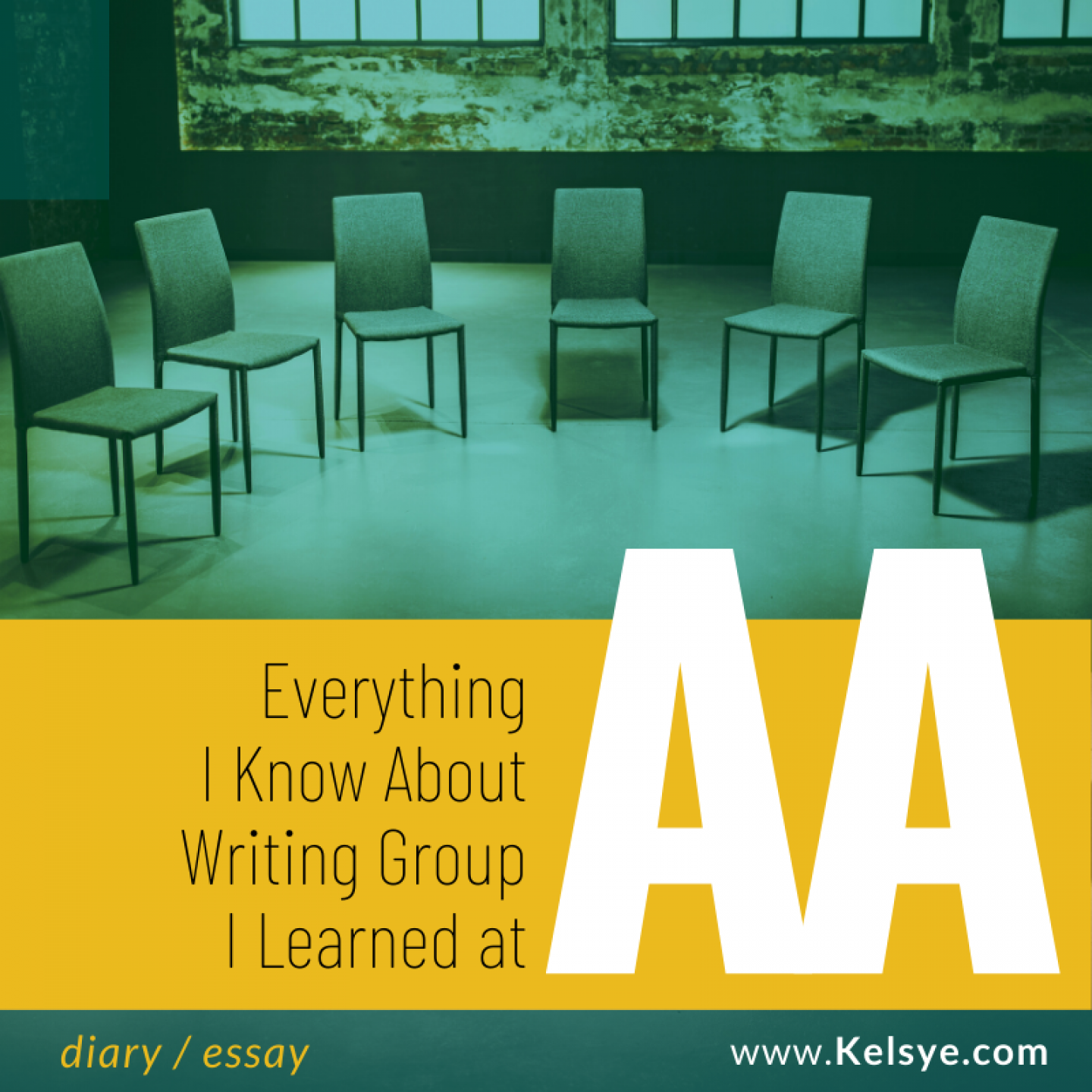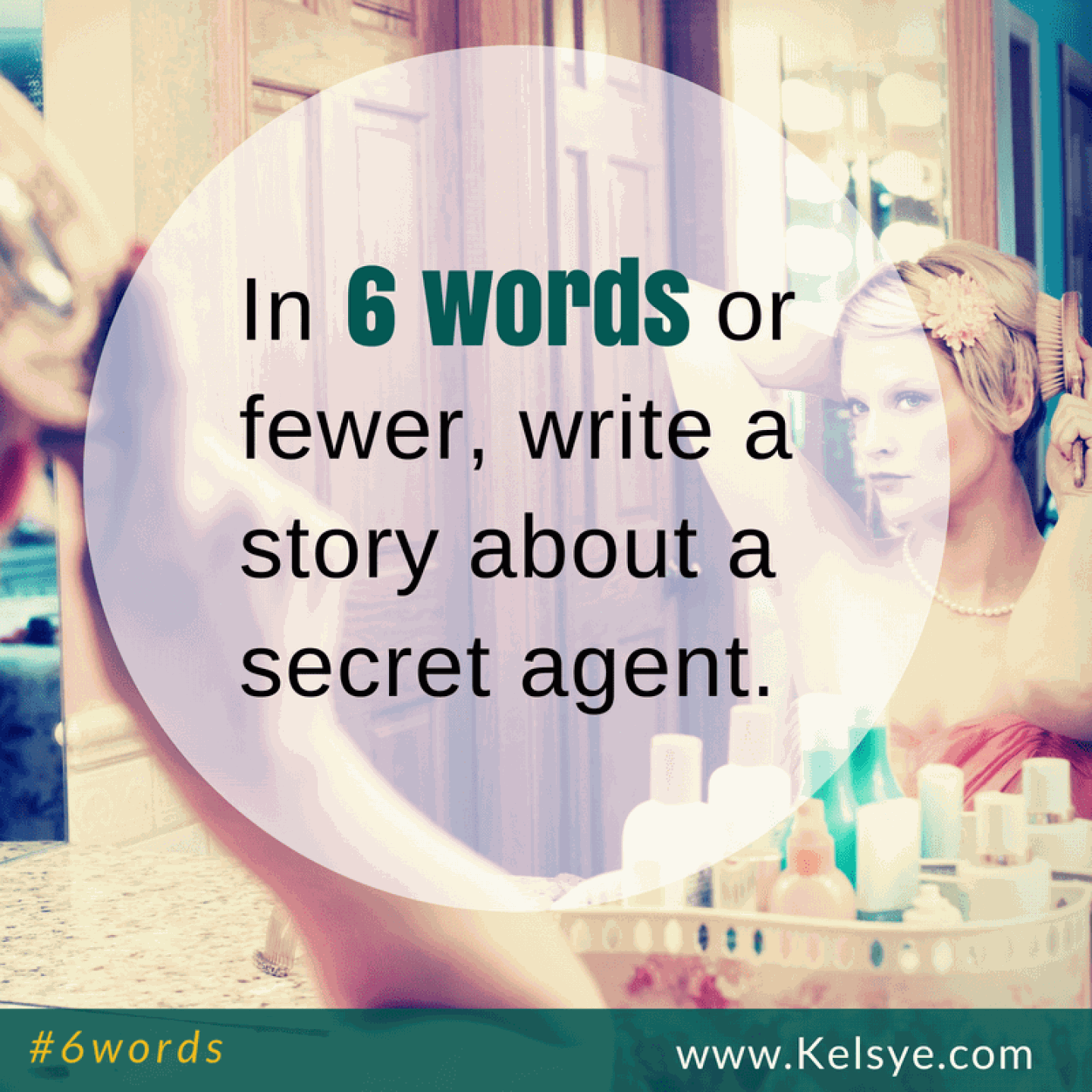”The alcoholics at AA taught me how to treat people who need people. ... In my writing group, we don’t hold hands, give hugs or say the serenity prayer. We give each other deep attention. When someone finishes reading their work, we say thank you for sharing. We say keep coming back.
I should be clear, I don’t have a drinking problem. I have a writing problem. Can’t get enough of it. Totally hooked. To cope with this affliction, I attend a weekly gathering of other people who share the struggle. All are welcome. We greet each other, we write, we share. These meetings save me from certain despair. Who knows - maybe without them I’d stop writing for good.
My father had a drinking problem. Before he experienced the holy intervention that sobered him up in my seventh year of life, AA meetings provided stable support. The custody agreement limited our time together to alternating weekends. To miss a meeting on account of visiting children would be to tempt fate something terrible. Rather than skip, he’d bring me along.
Oh, how I loved those meetings. Attending as a tagalong kid gave me special status in the group. Like a celebrity, or a team mascot. The butterscotch man brought candy just for me. Gentle women presented offerings of napkins full of cookies from the snack table. Someone having a steady hands day would mix boiling water with cocoa powder just for me. I’d sit on the floor and use one of those squeaky metal chairs as a desk for my coloring pages. Grey-faced men lavished praise on my messy artwork.
Throughout my childhood, when I caught murmurs about so-and-so being an alcoholic, that person instantly became someone I wanted to know. Estranged from your own family? That’s fine, just give me all your attention. Let me entertain you with stories of my cats or my mean big sister. Perhaps you hide a quarter in your pocket, waiting for the chance to pluck if from behind some kid’s ear? I’ll help you out.
Even more than perks of being the random kid at the AA meeting, I loved the stories most. I never heard adults speak as truthfully as they do in AA meetings. A man would stand up, mumble out a fascinating story about how he hid whiskey in his car and he was actually half-drunk right now but he should be at his job and he was afraid to go home because his wife thought he was a loser and last week he almost killed himself but he knows that was stupid and promises not to try again.
No one made any sound or ugly faces. Everyone listened with deep attention. When he finished his story and sat down, people nodded and said thank you for sharing. They said keep coming back. They said work it; it works. I watched the man closely so I could spot the first tear to fall from his red, watery eyes.
Holy crap, that’s powerful stuff when you’re six years old. Not just the juicy confessions, but the gestures of love and acceptance expressed by the group.
Every kid knows that when you do bad things, you get punished. Your parents get angry or disappointed. I mean, you don’t finish your broccoli and they act like you punched grandma or something. These alcoholics owned up to doing things way worse than palming gross veggies at the dinner table and they still got shortbread and a warm hug. Man, they had it figured out. Like some kind of evolved beings, they talked straight and forgave themselves and each other for their wrongs.
The alcoholics at AA taught me how to treat people who need people. Creating art feels a lot like exposing your secrets. As a developing writer, I craved a protected space to share my work. When I couldn’t find the writing group of my dreams, I created it myself.
Today is the 13th anniversary of our very first meeting. 🎉
Within my congregation of fellow scribblers, we judge no one “bad”. We empathize the process. Writing is a craft to be learned. All earnest efforts deserve respect, no matter the skill of the author.
In my writing group, we don’t hold hands, give hugs or say the serenity prayer. In fact, you shouldn’t touch the writers at all. That might get you in trouble. What we do is give each other deep attention. When someone finishes reading their work, we say thank you for sharing. We say keep coming back. Writers drift in and out. A handful faithfully attend every week. Some show up once and we never see them again. It’s all good. We’ll be here when you need us. Semi-evolved beings waiting to hear your story.






